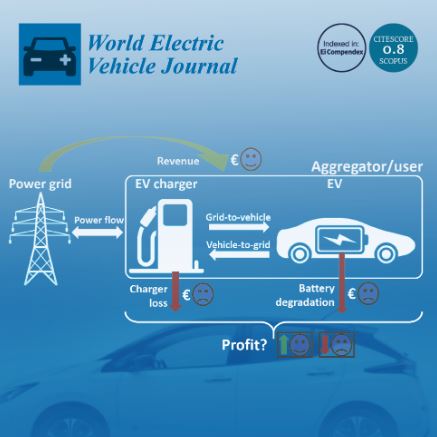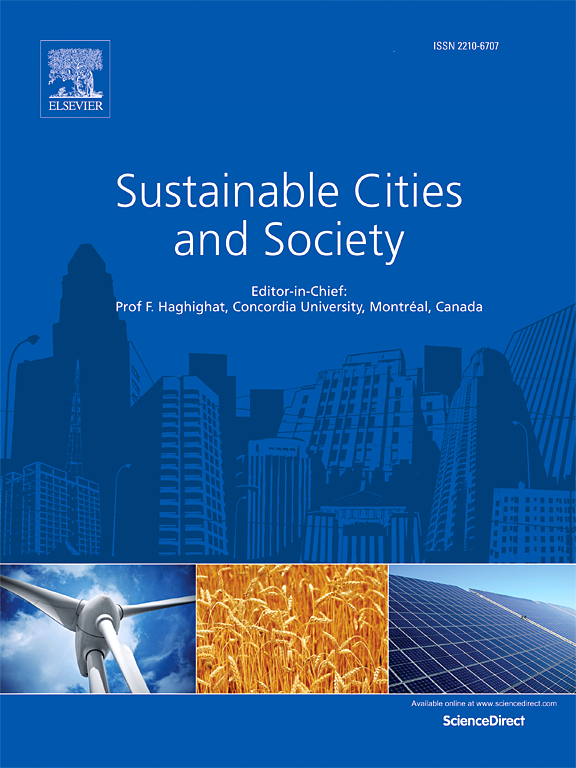Research Papers/Articles

How to Improve the Total Cost of Ownership of Electric Vehicles
2019
Author(s): Lebeau P, Macharis C, Mierlo JV
This paper analyses how the total cost of ownership (TCO) of electric light commercial vehicles change with the number of kilometers driven, the period of ownership, the residual value of the battery, and different fiscal incentives, as well as a kilometer charging scheme.
EleMA: A Reference Simulation Model Architecture and Interface Standard for Modeling and Testing of Electric Vehicles
2020
Author(s): Granrath C, Meyer MA, Andert J, Ewald J, Klink R, Stroh C, Pham T, Phillips R, Hettig C, Santaroni L, Deppe M, Hegazy O
This paper presents a reference simulation model architecture for electric vehicles, which is offered as a standard for closed-loop simulations in real-time and non-real-time. The proposed Electric Modeling Architecture (EleMA) is intended as an extension of standardized model exchange formats by defining standardized, functional and signal-based interfaces of electric vehicle simulation models.
Spatial Dimensions of Electric Mobility—Scenarios for Efficient and Fair Diffusion of Electric Vehicles in the Milan Urban Region
2021
Author(s): Pucci P
The main aim of this study is to investigate the spatial pattern of potential demand for electric vehicles in the Milan Urban Region (North Italy), and its relevance in defining diversified and site-based EV policies for promoting a fair transition towards low carbon mobility.
Consumer Preferences for Hybrid and Electric Vehicles and Deployment of the Charging Infrastructure: A Case Study of Lebanon
2021
Author(s): Jreige M, Abou-Zeid M, Kaysi I
This case study investigates consumer preferences and stakeholders’ interests regarding hybrid electric vehicles (HEVs) and electric vehicles (EVs) in the Greater Beirut Area (GBA) in Lebanon where the market for these vehicle types is still nascent.
Solar Based Wireless on Road Charging Station for Electric Vehicles
2021
Author(s): Kandasamy K, Keerthika K, Mathankumar M
In both the transportation and electricity sectors, the electric vehicle (EV) is emerging as a promising technology. In terms of economic and environmental conditions, there are greater advantages.
Benefits of Adopting California Medium- and Heavy-Duty Vehicle Regulations in New York State
2021
Author(s): Minjares R, Houk J, Juang J
This paper evaluates the benefits to New York State of adopting three California regulations: the Advanced Clean Trucks rule, the Heavy-Duty Omnibus rule, and the California Phase II greenhouse gas rule.
This technology brief summarises the technologies for biogas production and biogas-powered vehicle fleets that are now available, both established and emergent. It assesses pricing, performance, and long-term viability, as well as best practises from throughout the world for accelerating the use of this important renewable transportation fuel.
Electricity Demand and Carbon Emission in Power Generation Under High Penetration of Electric Vehicles
2020
Author(s): Gryparis E, Padopoulos P, Leligou HC, Psomopoulos CS
This study tries to evaluate the impact of the electric vehicle penetration in the electricity demand and related emissions inside the EU, in three steps.

Potential Users of Electric Mobility in Commercial Transport – Identification and Recommendations
2016
Author(s): Klauenberg J, Rudolph C, Zajicek J
There is a high potential for the use of electric vehicles in commercial transport. Commercial transport is seen as early adopter of electric mobility. But there is lack of knowledge regarding the use of battery electric vehicles for commercial transportation and potential user groups.

On the Sustainability of Electric Vehicles: What About Their Impacts on Land Use?
2021
Author(s): Orsi F
This study aims to start a discussion on the topic by exploring three relevant issues: the impact of EVs’ operating costs on urban size, the space requirements of charging facilities, the land demand of energy production through renewables.



